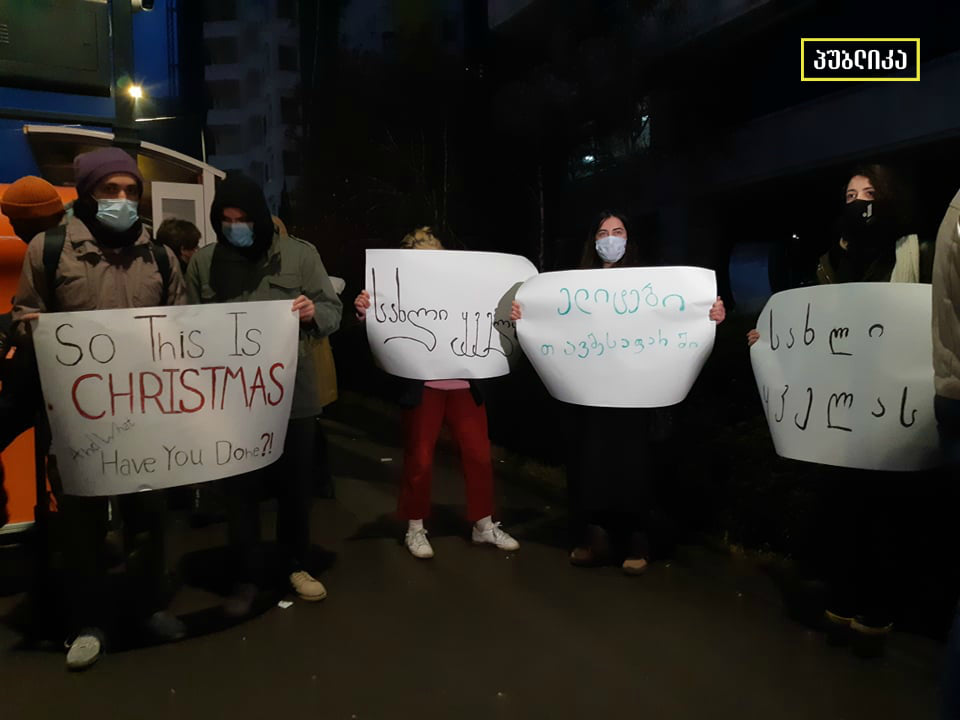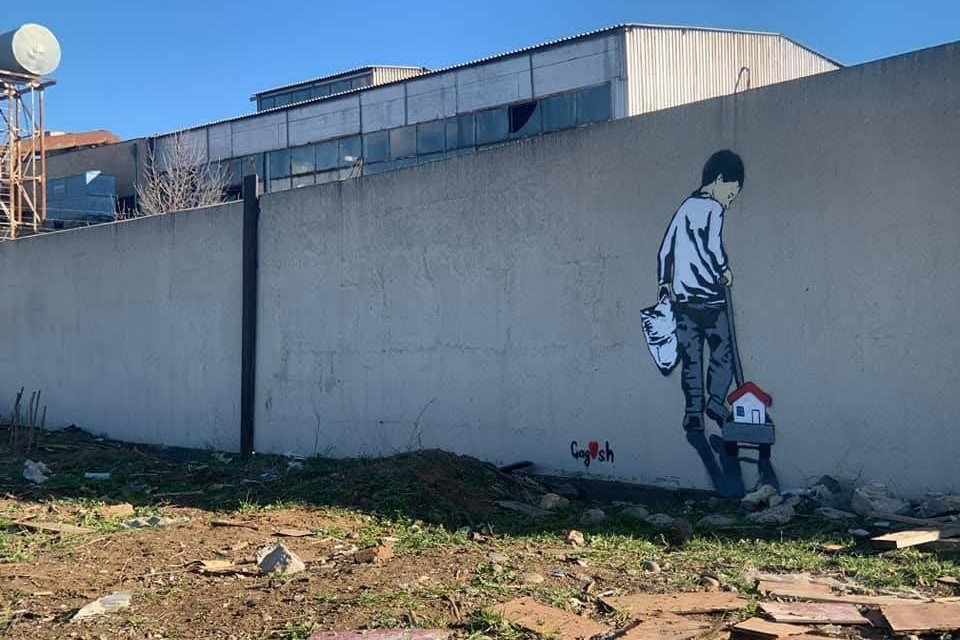
Tbilisi Mayor Kakha Kaladze has continued to demolish housing constructed illegally on public land despite facing public backlash.
The city municipal services resumed demolitions in the Ghimilis Ubani (smile neighbourhood) of the capital’s Varketili District on Wednesday, triggering a new wave of public condemnation.
Talking to RFE/RL, Levan Pipia, one of the residents of Ghimilis Ubani, claimed that the City Hall and police officers visited them at 07:00 and ordered them to immediately vacate their houses.
Some of them were IDPs from Abkhazia.
The city authorities demolished seven buildings, including five unfinished constructions on Wednesday.
The Tbilisi Municipal Inspection previously warned they would do so 18 December, three days after their controversial move to tear down a squatter settlement in the Aprika settlement in Samgori district. The demolition of 12 buildings in Aprika, which the authorities insist were unfinished and uninhabited, was criticised by the Georgian Public Defender, a number of rights groups, and left-wing activists.

Activists protesting outside Kaladze’s office in Tbilisi, including from the Greens group, also condemned the prosecution of Vano Potskhverashvili, a 22-year-old resident in Aprika, for resisting police after he tried to stop the demolitions on 15 December.
[Read more on OC Media: Tbilisi Mayor poses with Aprika residents after demolishing squatter settlement]
Following the demolitions on Wednesday, Kaladze reiterated that it was unacceptable to ‘illegally appropriate’ public land.
‘We won’t let it happen because tomorrow, someone might place such a building on a private property estate’, Kaladze argued.
The mayor added that violating property and construction laws could not be justified by poverty.
Structural reasons
Since 15 December, Tbilisi City Hall and their 44-staff-strong public relations department have argued that ‘most’ of those whose houses they had demolished or planned to take down in the future had elsewhere to go.
Kaladze, who recently referred to such informal houses as ‘holiday cottages’, urged those with nowhere else to go to use municipal homeless shelters and vowed that Tbilisi City Hall would subsidise rent for flats.
Lina Ghvinianidze, Social Rights Programme director at local rights group EMC, told OC Media that both the shelters and state-rented flats were ‘scarce’ resources and would not improve the worsening housing situation anyway.
According to Ghvinianidze, the municipal and central authorities have failed to see the structural reasons that cause homelessness.

‘In cases of serious and chronic diseases, financially vulnerable families are quick to agree to any terms offered by banks or private lenders to mortgage their property and meet medical costs. Most of such cases easily end up with the loss of property and the problem is exacerbated by an unregulated financial sector pursuing high-interest rates’, Ghvinianidze told OC Media.
EMC identified labour migration to Tbilisi, job cuts, and inaccessible healthcare services as the biggest reasons leading to rapid loss of adequate housing.
Seeking services for a disabled family member that are available only in the capital city is also an incentive to move to Tbilisi, according to housing rights advocates.
Ghvinianidze said that when considering whether to grant housing or not, municipalities considered factors such as inheritable immovable property for men who had moved out from their families, or formal ownership of the property for divorced women, with no regard for their actual accessibility to them.







